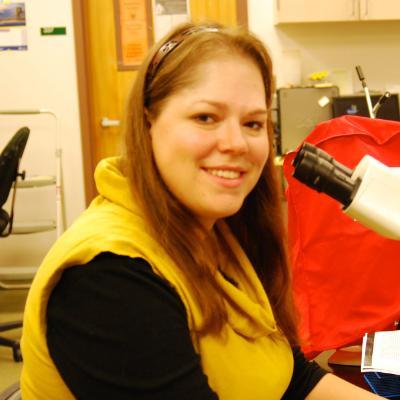Taegan McMahon
Associate Professor of Biology
Joined Connecticut College: 2020
Education
Ph.D., University of South Florida
Taegan McMahon is a conservation disease ecologist who studies the impacts of anthropogenic influences, climate change, urbanization, and disease on wild animals. She earned her undergraduate degree at Bates College, taught ecology in Costa Rica, and then earned her doctorate at the University of South Florida.
McMahon has a broad interest in both applied and fundamental ecology and is curious about most ecology-related research questions. Her work examines a range of ecological scales, from acute pathogen exposure in controlled individual incubation experiments to chronic environmental disturbance surveys in complex natural ecosystems. True understanding of natural phenomena requires thinking across the biological scale—from individuals to populations to ecosystems—and from short term to long term. McMahon utilizes a multidisciplinary and integrative approach to address fundamental ecological questions, drawing on research and teaching expertise across community, urban and vector ecology; invertebrate biology; entomology; parasitology; and molecular biology.
McMahon’s work requires a multifaceted approach, incorporating molecular lab techniques, fieldwork around the world, and data-driven modeling. This approach allows for better understanding of the true complexities of a system. McMahon is dedicated to mentoring undergraduate researchers in science. She has built a lab that incorporates a diverse group of undergraduate research students, they all bring unique interests and experience. Through a strong network of collaborators, McMahon is able to expand the breadth and strength of the research questions she asks.
Much of McMahon’s research focuses on understanding the ecology of the pathogenic fungus Batrachochytrium dendrobatidis (known as Bd). This fungus is found globally, lives predominantly in freshwater systems, and has been associated with the extinction and decline of over 500 species of amphibians (frogs, toads and salamanders) worldwide. Bd is considered one of the deadliest organisms in the world.
There’s no chance of eradicating this pathogen, so McMahon is exploring the ecology of the fungus to better understand how it persists and spreads in nature and is developing ways to help at-risk animals survive exposure. McMahon received a National Institutes of Health grant to investigate the other animals (i.e., hosts) on which Bd can survive, and to learn which of these hosts can spread the fungus (i.e., are vectors). Currently in its early stages, the discovery of nonamphibian hosts and vectors completely changes the management of this system from a conservation perspective.
Additionally, McMahon received a National Science Foundation grant facilitating the development of a wildlife vaccine that would protect frogs from this deadly fungus. This work could provide protection for at-risk populations and possibly reestablish populations in the wild.
Contact Taegan McMahon
Mailing Address
Taegan McMahon
Connecticut College
270 Mohegan Ave.
New London, CT 06320
